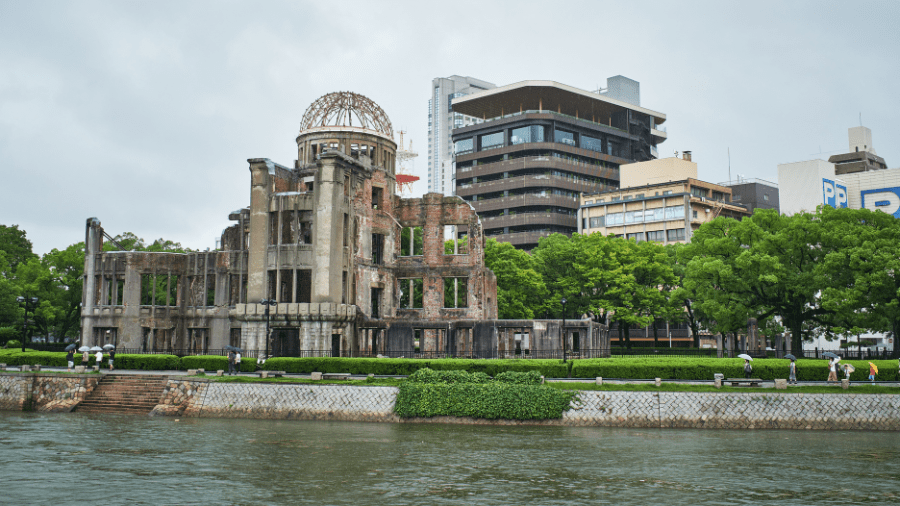This article originally appeared in the Japan Times.
By Stephen Nagy, May 18, 2023
This year’s Group of Seven Summit in Hiroshima is taking place in the backdrop of four major challenges to our rules-based order: Russia’s invasion of the Ukraine, China’s global ambitions, North Korea’s nuclear brinkmanship and the divide with the Global South.
How the G7 collectively and concretely deals with these issues will shape the future of the rules-based order that has brought peace, prosperity and stability in the post-World War II period. Here is a list of priorities and issues the meeting needs to address:
The first priority for the G7 Summit will be to preserve that rules-based order. This means ensuring that the international community adheres to a set of agreed-upon norms and principles that govern the behavior of states.
For Japan and members of the G7, if there is not a rules-based order, they, like Ukraine, Taiwan or the Himalayan plateau dispute between India and China, can fall prey to Machiavellian, might-is-right approach to foreign policy.
Approximately $4.4 trillion in trade transits the sea lines of communication (SLOC) that connect the Malacca Straits to the South China Sea to waterways surrounding Taiwan. Japan and the global community have an existential interest in protecting the rule-based order from destabilizing authoritarian behavior in these sea lines and in other parts of the world.
Being the constituency of Prime Minister Fumio Kishida, the second priority for the G7 in Hiroshima will be denuclearization. North Korea’s weapons of mass destruction and continued testing of missile systems pose a grave threat to Japan and its neighbors. This threat includes accidents related to missile and nuclear weapons testing.
China also wishes to expand its nuclear stockpile to 1,500 missiles by 2035, according to a Pentagon Report in 2021, which will contribute greatly to the WMD proliferation problem. Most recently, Russian President Vladimir Putin, a day after Chinese leader Xi Jinping left Moscow at the end of a state visit, declared that his country would install tactical nuclear weapons in Belarus.
The G7 members have deep concerns about Russia “suspending its membership” in the New START, a treaty that limits the number of deployed nuclear warheads and launchers, China not being part of any intermediate missile treaty and North Korea continuing to be a serial WMD developer.
Working with this year’s guests that include India, South Korea, Vietnam, Comoros, the Cook Islands, Brazil, Indonesia and Australia, the G7 aims to send a cohesive message that denuclearization is critical to preventing WMD proliferation and nuclear conflict.
The Hiroshima summit messaging on denuclearization should be continued at the United Nations, at NATO Asia-Pacific Partners Leaders’ Meeting and other international venues as well.
Third, Beijing’s global and regional intentions under Xi, including its approach to relations with Taiwan, will be a major focus of the summit. China’s pro-Russian neutrality and its clear violation of its own Five Principles of Peaceful Coexistence in not explicitly condemning Russia’s invasion of Ukraine deeply concerns G7 members as does its increased belligerence toward the island of Taiwan.
Authoritarian alignment between China and Russia and the use by China of gray-zone tactics in the high seas threaten the stability of the region’s essential SLOCs. Moreover, ignoring international law and agreements such as the 1984 Sino-British Joint Declaration agreement over Hong Kong and the 2016 decision by the Permanent Court of Arbitration rejecting all of Beijing’s claims in the South China Sea suggest that China’s re-emergence, led by the Communist Party of China, will be an illiberal one that comes at the expense of neighbors through coercion or kinetic means.
Fourth, fostering unity and a shared sense of the importance of a rules-based order with the Global South is another priority. The Global South refers to the group of heterogeneous developing countries, many of which face significant challenges such as poverty, disease and conflict. Many abstained from U.N. votes condemning Russian’s invasion of Ukraine suggesting that this is a Western conflict, not an act of aggression that involves them.
China has also made inroads in building strong relations with the Global South based on their noninterference principle and generous loans and development projects through the Belt and Road initiative.
This has translated into securing votes of support in international institutions that weaken notions of human rights and democracy. Recent examples include Beijing’s efforts to create a coalition of developing states to vote down a motion to discuss a U.N. report on China’s serious human rights violations in the province of Xinjiang. We also saw Beijing’s action to bring together Belt and Road initiative members to abstain from a resolution on Russia’s “aggression against Ukraine.”
The G7 recognizes that it has a responsibility to help the Global South develop and to address the root causes of poverty and inequality. Furthermore, they acknowledge that the G7 needs to consider how to provide financial assistance, technology transfer and other forms of support to such nations.
A concrete financial, technological and diplomatic commitment to the Global South and its needs would accrue more buy-in on issues of global consequences such as admonishing Russia’s invasion and supporting the rules-based order, as well as dilute China’s influence.
As part of Tokyo and Seoul’s rapprochement, South Korea will be a guest at the G7. As a fellow democratic country that depends on a rules-based order for its security, South Korea has lots to offer the G7.
It is a major economic and military power in the region and it is a key ally of the United States. As part of their discussions, the G7 will need to consider how to support South Korea’s security and stability in the face of threats from North Korea. Inculcating South Korea into the G7 dialogue is also another important layer of Japan-South Korea dialogue that can spill over positively to help mitigate tensions over historical issues and territorial disputes.
India is another country that the G7 will need to address. As a major emerging economy and a key player in the region, which will host the upcoming Group of 20 meeting, Japan and G7 members hope to deepen engagement with India and support its efforts to address challenges such as poverty, inequality and climate change.
Simultaneously, they want to build a strong and equal partnership with New Delhi where India works alongside the G7 countries to contribute to solving challenges facing the Global South while countering the Beijing narrative that the current rules-based order is a Western one that doesn’t represent the interests of those nations.
The G7 and Japan have much to gain and much to lose based on the success of the Hiroshima Summit. Cohesiveness among the G7 leaders on Russia’s invasion of Ukraine; China’s global ambitions and North Korea will be critical to investing in a rules-based order but so will strong support for the Global South and its numerous priorities.
Dr. Stephen Nagy is a professor at the International Christian University in Tokyo, a fellow at the Canadian Global Affairs Institute; a senior fellow at the MacDonald Laurier Institute; a senior fellow at the East Asia Security Center; and a visiting fellow with the Japan Institute for International Affairs.






